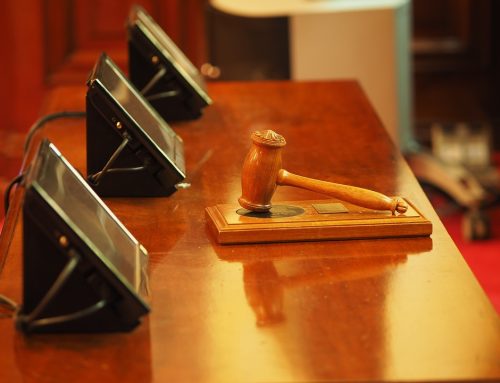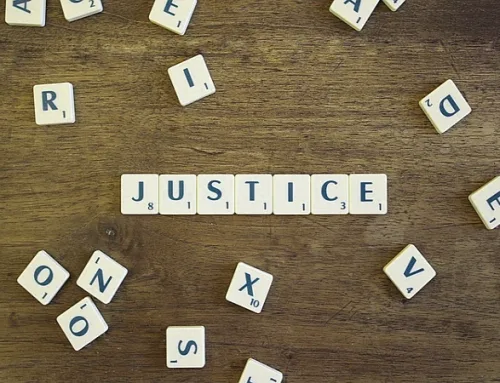If you have been in a retail establishment, chances are good you have experienced firsthand the consequences of shoplifting. Admit it or not, taking merchandise without permission can result in both civil and criminal legal actions being brought against you, so it is always wise to be informed of all potential legal consequences should you engage in retail theft.
This blog post will go over all aspects of retail theft prosecution, from potential consequences and legal proceedings to strategies for mitigating criminal charges or damage to your reputation if ever faced with such circumstances. So read on and learn what information is necessary in order to protect yourself, your privileges, and your rights!
Retail Theft or Shoplifting Charges
Retail theft, or shoplifting, is considered a criminal act, and those caught engaging in such activity may face legal charges. Most forms of retail theft or shoplifting fall under misdemeanor laws; typically punishable with probation, fines, and/or community service hours. However, in more serious instances, retail theft could even be considered a felony offense with more severe repercussions, including jail time and potential substantial monetary fines.
What Are the Different Forms of Retail Theft?
Law enforcement typically differentiates between minor and major forms of retail theft. Minor offenses usually involve shoplifting small items like candy or gum from stores; more serious incidents typically involve taking more. While minor offenses do not usually incur severe penalties, those accused of more severe incidents could face more stringent repercussions.
Minor shoplifting might seem harmless, but its consequences still exist. In many states, anyone found possessing stolen merchandise may face fines or jail sentences for something as seemingly minor as stealing candy from the supermarket. On the other hand, major incidents of shoplifting could lead to even more severe consequences; depending on one’s jurisdiction of residence, thefts that exceed certain monetary thresholds may lead to criminal charges with potential prison terms and long-term ramifications.
Repeat offenders may face harsher punishment from the courts than first-time offenders who demonstrate some level of regret and contrition for their actions, so it is imperative that everyone, whether or not previously engaged in retail theft, understands its gravity and takes all appropriate measures if charged with either misdemeanor or felony criminal activity.
Retail theft has serious repercussions that should not be underestimated, so those accused must understand their legal rights and responsibilities moving forward. Becoming well-informed on how to best defend against these allegations when brought before a judge or jury for trial can provide invaluable help when facing similar accusations from others.
While store theft cases may never make their way into court, prosecuting and trying store thieves requires careful planning and knowledge of criminal defense laws in order to ensure one’s rights and interests remain safe throughout any legal proceedings one faces.
- According to the National Council on Shoplifting Prevention, 19% of adults have ever shoplifted.
- Adult perpetrators of retail theft in 43 states face misdemeanor charges and jail time of up to one year, depending on where they commit their act of retail theft.
- If the value of merchandise stolen exceeds a specified threshold amount, those caught shoplifting could face criminal charges, which may carry up to one or more years in prison.
Prosecuting and Trying Store Thefters
The prosecution and trial of store thieves can be a complex process that involves charging them with retail theft, gathering evidence against them, and then presenting that evidence before the court. Depending on the legality and severity of an offense, this process could differ significantly.
The prosecution of store thieves requires both law enforcement officers and attorneys to act with care, consideration, and detail. Both sides must consider all available evidence collected during an investigation – witness testimonies entered into the record – then present their strongest argument to effectively resolve each retailer’s theft case against offenders. Ultimately, successful prosecution for retail theft often depends on many different factors, including legal circumstances, evidence availability, the severity of the charges filed, and so forth.
Now that we’ve reviewed some of the intricacies involved in prosecuting store thieves, let’s move on to discuss the evidence required in order to prove someone’s retail theft or shoplifting.
Evidence Required to Prove Retail Theft
The prosecution of shoplifting or retail theft cases depends heavily on their specific circumstances, as the necessary evidence varies widely depending on each case. Prosecutors typically rely on circumstantial evidence such as surveillance footage or witness testimony to establish charges; forensic evidence such as fingerprints can often serve as key pieces of proof, while in certain jurisdictions prosecutors may present criminal histories as proof that someone was acting with an intent to steal.
Prosecutors must also show that the business experienced losses as a result of any criminal act committed against it. They might need evidence of access to or possession of stolen goods as well as evidence that an alleged thief took them off store shelves for their market value in order to prove this. To demonstrate this point effectively, authorities need precise evidence such as CCTV footage or witness statements to demonstrate both parties’ involvement in this theft scheme.
Given all these considerations, it stands to reason that prosecutors should be well prepared before filing shoplifting charges in court, given how much is at stake for both sides. It’s also essential for defendants facing such accusations to understand their legal rights and any possible defense strategies available during trial proceedings; penalties can range from probation sentences and fines up to prison time, depending on the severity of their crimes.
Penalties for Retail Theft and Shoplifting
Penalties for retail theft or shoplifting vary significantly depending on its value and the laws in the jurisdiction where it occurred, with fines or jail sentences commonly being assessed if found guilty.
Some states treat theft of any item valued below a specific threshold as a misdemeanor, punishable by up to one year in jail and fines up to $1,000. Conversely, thefts of items of greater value are classified as felonies, with harsher punishments that may include jail terms of more than one year and fines that reach as much as $10,000.
These findings underscore how complex retail theft and shoplifting cases can become. If those accused are found guilty, it is critical that they understand their rights throughout every stage of the legal process—from initial evidence gathering to jury deliberations—in order to have the highest chance at an advantageous ruling. Furthermore, it’s vitally important that one explore what potential outcomes exist when someone is found guilty in a court of retail theft or shoplifting.
Legal Rights and Obligations for Customers
Understanding customers’ legal rights and obligations when prosecuting retail theft or shoplifting is key to legal proceedings against retail theft or shoplifting. As a general rule, anyone caught shoplifting will likely be detained and prosecuted according to the law, but customers have an obligation to refrain from theft by following store policies.
Customers have the right to due process, which includes protecting themselves from unreasonable searches and seizures. Case law indicates that store employees cannot detain anyone against their will unless there is evidence proving theft has taken place. Store security personnel may conduct routine inspections or request proof of purchase; however, any items returned if no reasonable cause exists to suspect shoplifting must be returned immediately.
Customers also have the right to seek legal representation before providing any statements while in custody and to remain silent until counsel can provide guidance. Under the Fifth Amendment, customers have protection from self-incrimination regarding shoplifting allegations.
Final Thoughts
It should go without saying that all parties involved in any retail theft or shoplifting prosecution or allegation must uphold and respect customers’ fundamental legal rights, so they may feel secure that their due process rights will be protected throughout any potential criminal proceedings.
If you are being charged with retail theft or shoplifting, having experienced legal representation to defend your rights is critical. Call Wyland Law Group now at 412-710-0013 for an initial consultation session with one of their skilled attorneys. We understand the grave repercussions associated with theft charges, such as fines, restitution payments, community service obligations, and even potential jail time. Our dedicated team will work diligently to craft an effective defense for you against shoplifting charges, negotiate with prosecutors, and explore all available options to reduce their impact on your record and future. Don’t face shoplifting alone: call us now for expert legal guidance and representation that is focused on upholding your rights while reaching a positive resolution for your case.







Leave A Comment